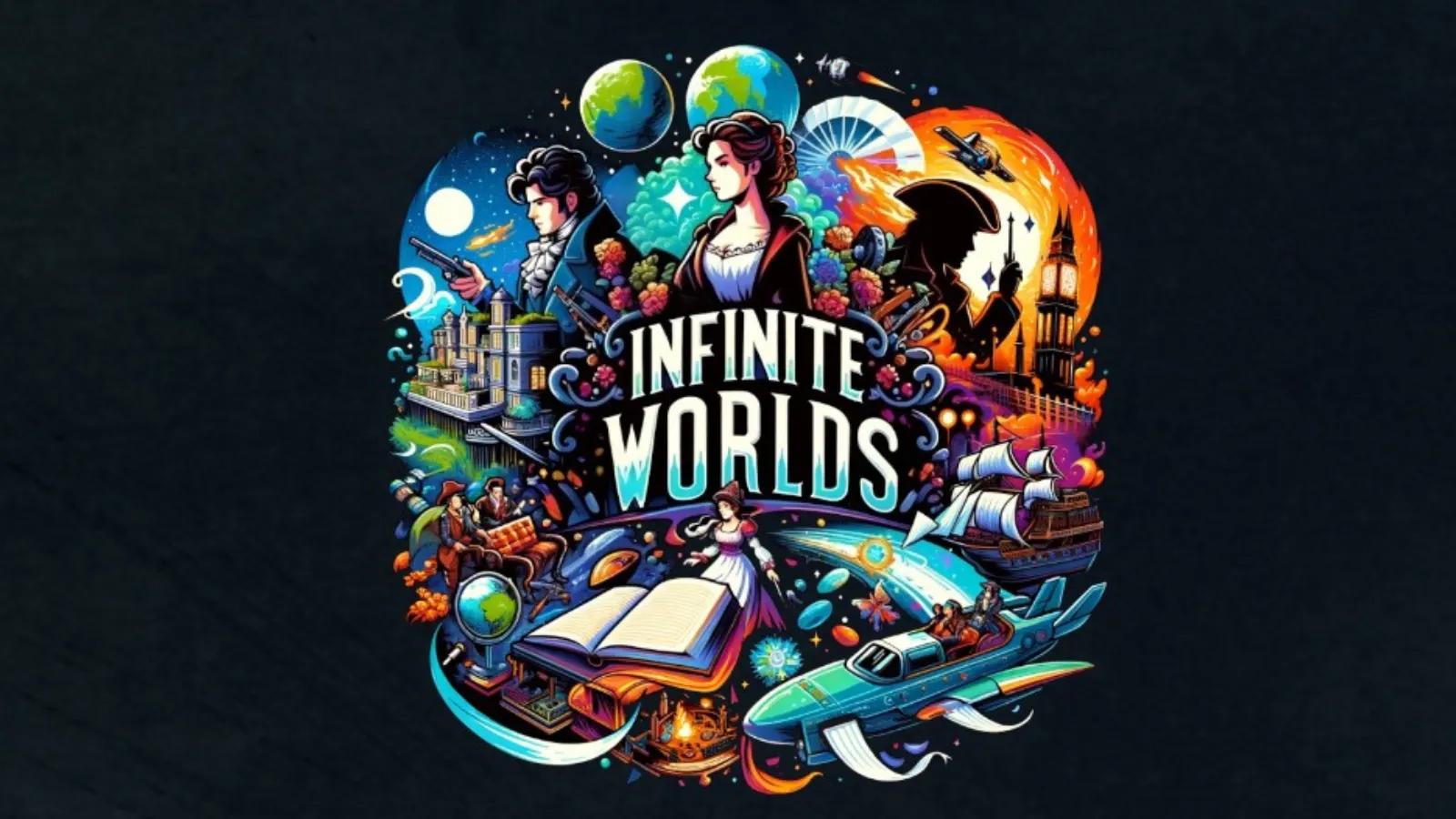Among the ever-increasing number of uses for generative AI, imaginative gamers are using the technology to create new forms of choose-your-own-adventure games. One developer putting its stamp on the text-based game genre is Friendly Fox Games, which announced the launch of its first game Infinite Worlds on Wednesday.
Using OpenAI’s GPT-4 and AI image generator Stable Diffusion, Infinite Worlds lets players dive into adventures set in premade games—or, using prompts, create their own adventure narratives complete with character descriptions and images.
“I've always been interested in [role-playing games],” the Friendly Fox Games creator who goes simply by Alex told Decrypt's GG in an interview. “But because of the way it's worked out with my social circle, none of my friends ever really want to play."
By using AI tools, Alex said he realized that he could generate and play storylines without needing other players.
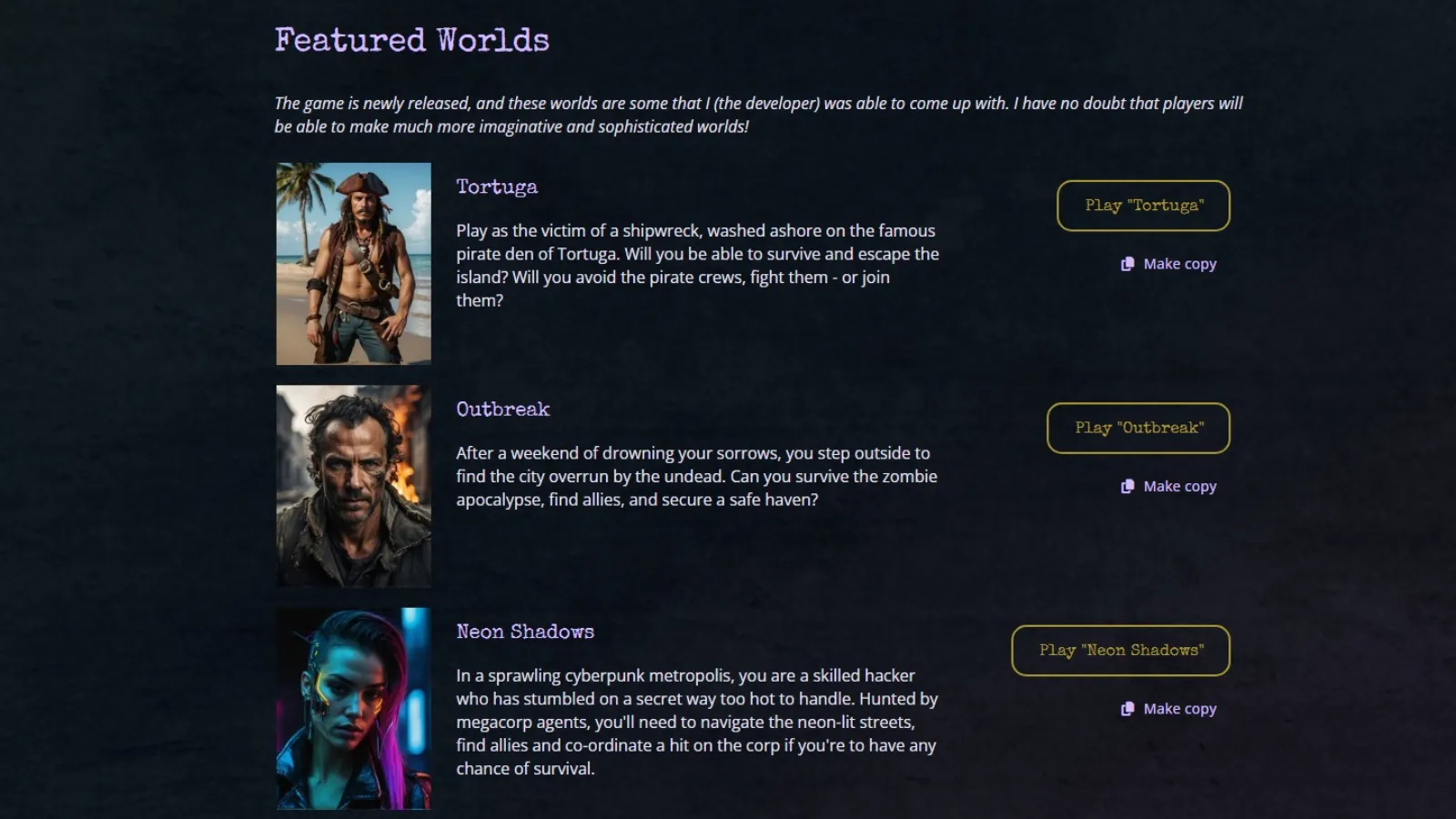
“That's unique to tabletop RPGs,” Alex said. “Computer games can give you a lot—but then you can't just do whatever you want, and I really liked that idea. You could do whatever you want, and AI will make it make sense.”
A solo developer, Alex shared his initial fascination with AI's evolving capabilities, noting its progression from basic tasks to advanced storytelling. Initially struck by AI's writing and knowledge of popular culture, he encountered limitations in coherence and structure. The release of OpenAI's GPT-4 model last year and subsequent improvements significantly advanced ChatGPT's performance, he said, making it adept at creating detailed adventures.
As a turn-based game, players are given three options to progress in the story; they also have the option to write their own action choice that the game will attempt to create a scenario for.
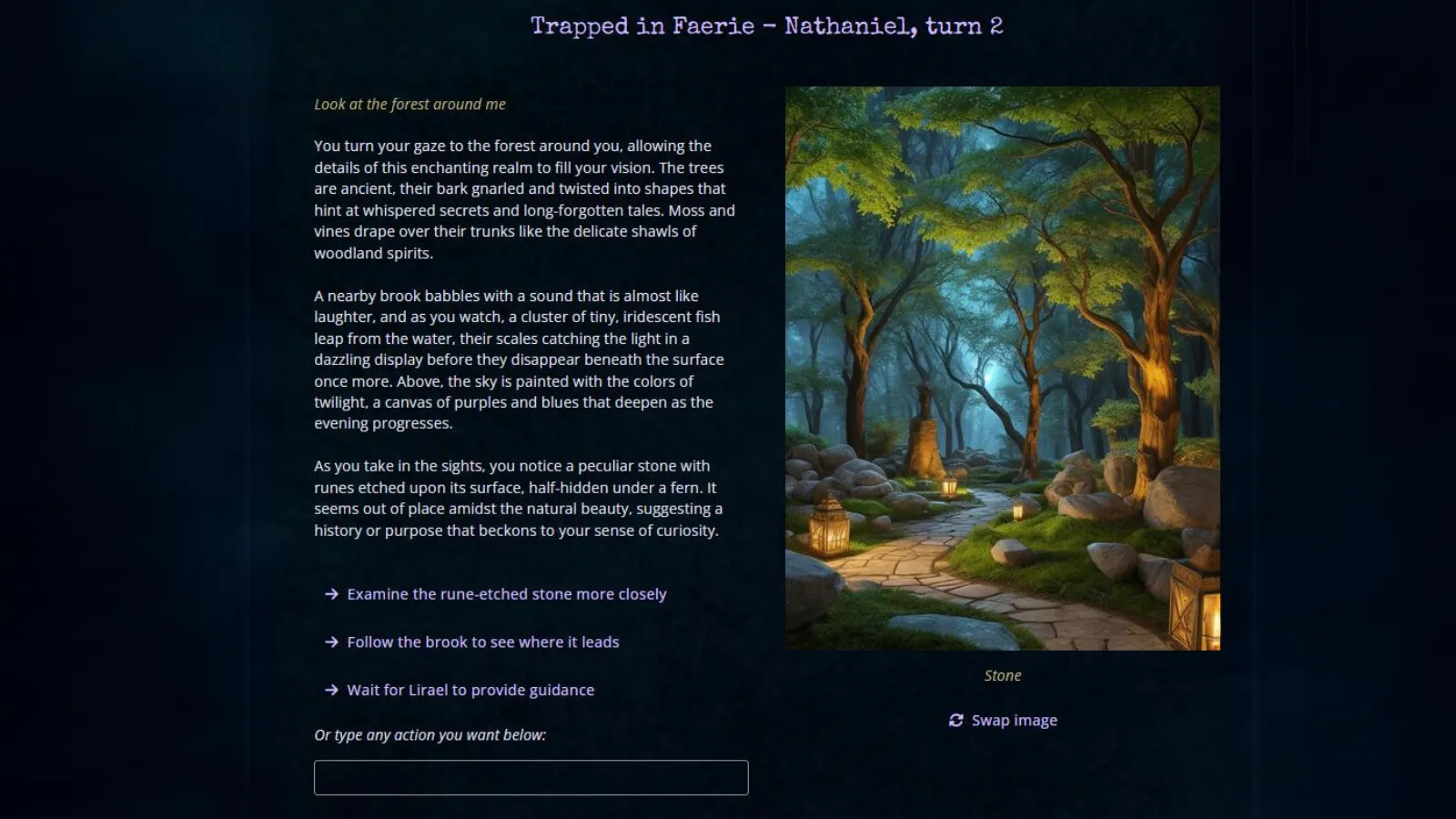
Players can also edit the story and characters during the creation stage of the game, with the option to upload a custom image of a character or even a photo of themselves if they choose.
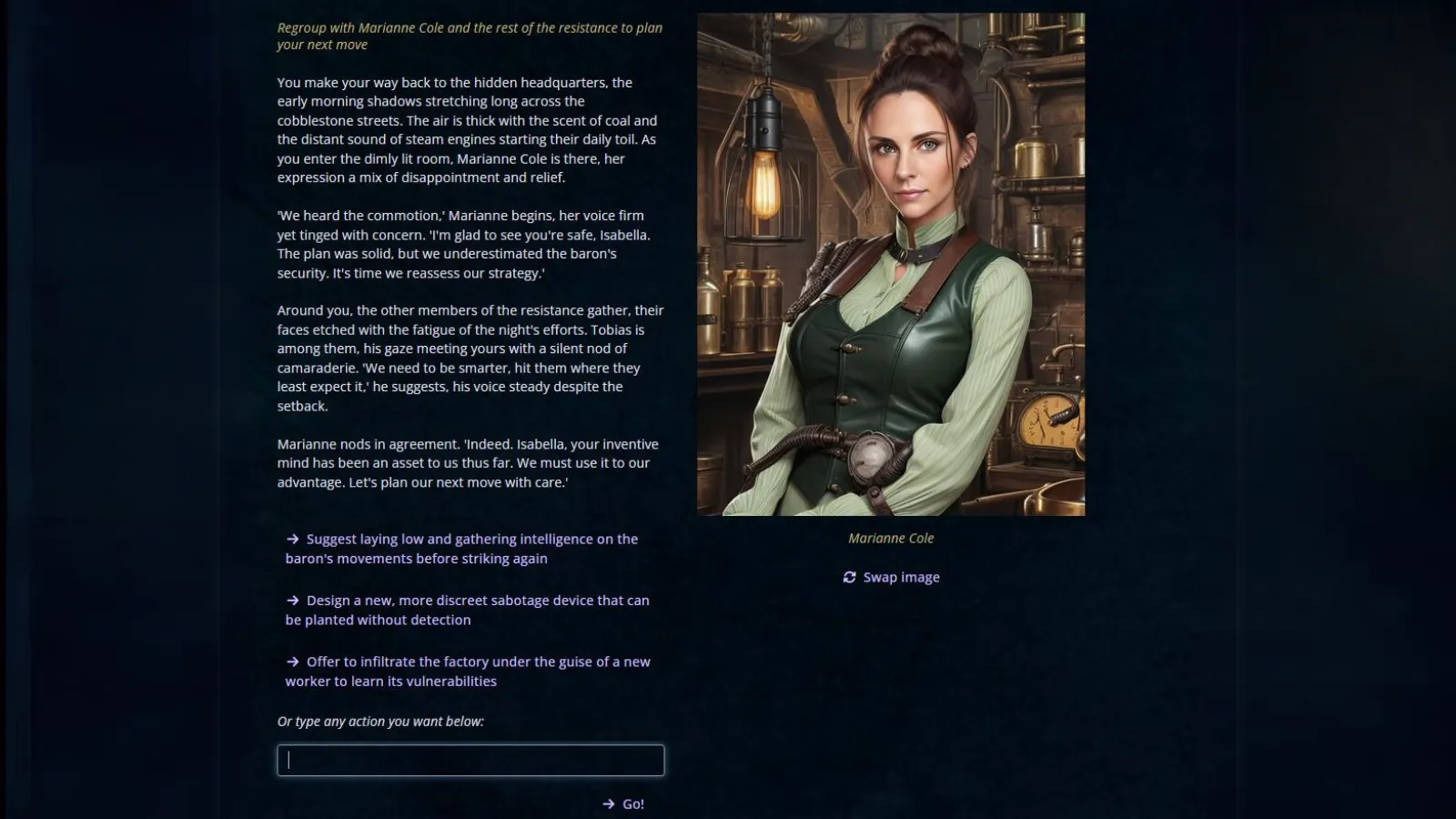
Despite how powerful generative AI has become since the initial launch of ChatGPT, image generation still leaves something to be desired in many cases. Accurately depicting human anatomy varies between AI models, as do the resources available once the image is generated.
“So the image generation AI is not brilliant—like, we notice that it's a bit weird,” Alex said. “People often have extra arms, and they look a bit plasticky and stuff. That's the best I could find at the moment that can do it fast enough to not be too annoying.”
Still, he believes that future advances in AI image generation will fix the anatomy problem.
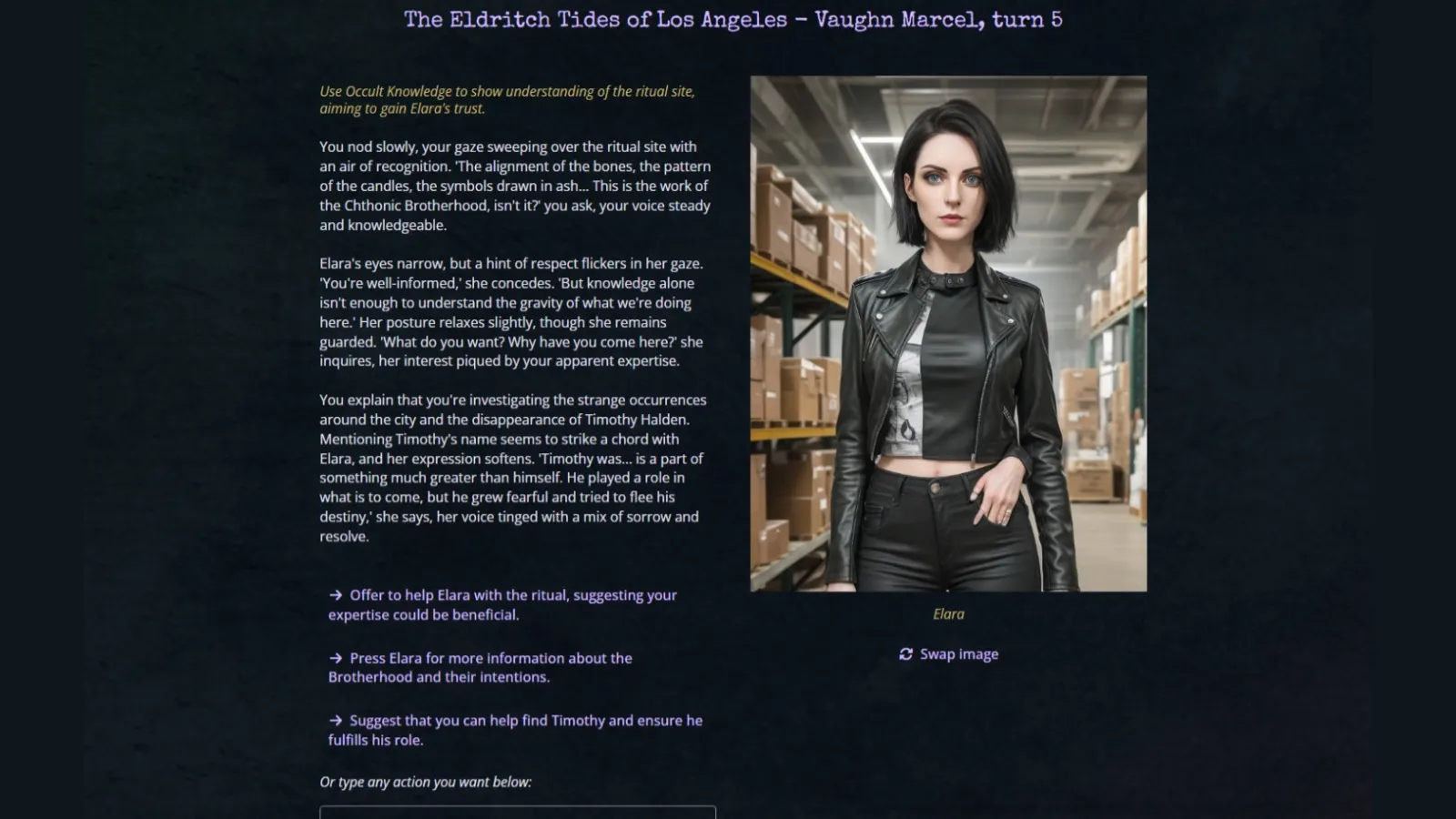
Other games using AI-powered text include the Discord-based Alchemy: Battle for Ankhos, which uses the generative AI platform Midjourney to create dialogue and images for fantasy-turned-based adventures. Alchemy also uses the Solana blockchain for game-related digital collectibles.
The cost involved with a project of this nature also varies, Alex said. Calling Infinite Worlds a "hobby," Alex said the project can get expensive the more it's used, noting that Stable Diffusion was cheaper than tapping Dall-E 3 through GPT-4.
“[Generating AI images] is actually much cheaper than the text, surprisingl: it's like 5% of the cost or less. Or you could say GPT-4 is really expensive,” he said. “There are better image generation APIs, but they're really slow. If you make the player wait for the image, it's not fun anymore.”
When asked why he did not use Dall-E, which comes with GPT-4, Alex said the cost of using OpenAI’s proprietary image generator—and restrictions on the type of images it would create—made Stable Diffusion a better choice for Infinite Worlds.
In each turn of a text-based adventure game, Alex explained, a comprehensive set of instructions is imputed into GPT-4. These inputs outline the game's genre, character information, skill sets, a synopsis of ongoing events, recent actions, and the expected narrative progression. GPT-4 is also queried for further narrative development, visual prompts, and future action alternatives. All of those queries quickly add up.
“It's a chunk of stuff going back and forth each time,” Alex said. “Other people have done things like AI dungeons where they've gone for low cost, and there's a limit to how sophisticated it could be. I was really interested to see how far we can go the other way: Accept some cost, which I think will come down quickly, and see how good of a story we can make if we're willing to invest in it.”
The hope, Alex said, is that gamers will be so enamored with Infinite Worlds they will sign up to purchase tokens to continue playing.
“Every time anyone takes a turn, it costs me about four cents. So the model is that you can play for a bit for free, and then the game will ask players to buy some credits,” Alex said, noting that he receives a percentage of the token purchase cost.
“I'm taking a gamble that I'm not gonna lose all my money,” he admitted.
Edited by Andrew Hayward

